The trading system is one of the deepest and most used game mechanics in Minecraft. It was added quite a while back, in Java Edition 1.3.1. In modern Minecraft, with the help of villagers, players can trade a wide range of items using Emerald. Therefore, in this article, we are going to list out the top 5 tips and tricks for efficient trading in Minecraft.
1 - Cure villagers for a permanent discount
Villagers are defenseless NPCs in Minecraft that can be killed easily by zombies. This is not a bad thing, as the process can be reversed fairly easily with a golden apple and splash potion of weakness. After getting cured, the former zombie villager will reduce their trade prices permanently.
The best part of this trading with villagers tip is that you can stack this discount up to 5 times by repeating the process on one villager. Just keep a zombie somewhere nearby, turn the difficulty to hard, and let it kill a villager.
This is very important, as in Hard villagers have a 100% chance to turn into zombie villagers when attacked by zombies. At 5 stacks, all trades prices will be reduced to one emerald.
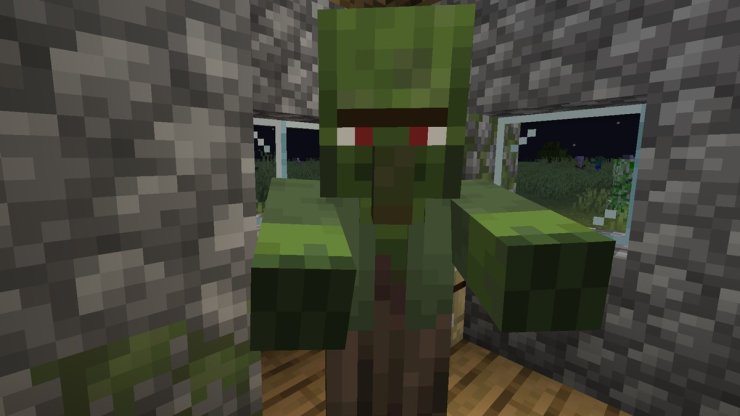
2 - Reputation system
Villagers actually gossip with each other and if you did a good deed to one (splash potion of healing, buying items), the NPC would tell others. This, in turn, increases your reputation and other villagers would give you a discount.
This is why when building a trading hall, players should make sure they can talk. Defending the village from a raid also gives a big boost in reputation.
3 - Loop to get infinite emerald
As the smallest transaction price is 1 emerald, players can make infinite emerald farms using trade loops. For example, if players managed to reduce the buying/selling cost of bookshelves and books to 1 emerald, they would be able to buy a bookshelf with one emerald, break it down to 3 books and sell them for 3 emeralds.
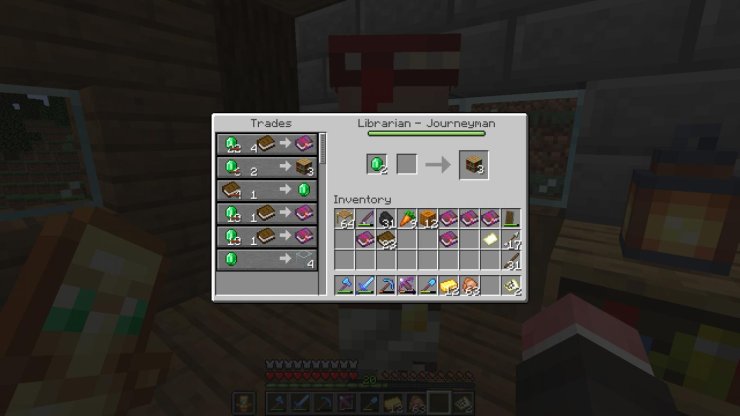
4 - How to refresh trades faster?
Villagers in Minecraft actually need to restock their items. Players can only trade for something 12 or 16 times before it is locked. Afterward, villagers need to work on their job sites to renew trades.
They can do this up to 4 times per day. Afterward, all trades will stay locked until the next day. This is why experienced players often imprison all villagers next to their trade blocks - to shorten the restocking process.
5 - Buying the same items increase trade cost
Besides reputation, Minecraft item trading prices are also based on price multiplier and demand. The more you buy an item, the higher its price rises. If an item is sold out, the next time it resupplies, all players will get a price increase. The price would go back down eventually if players don't trade for that high-priced item.
Demand is tracked per item, not per villager, so a villager can offer a higher-priced trade for a single item while other items are cheaper.
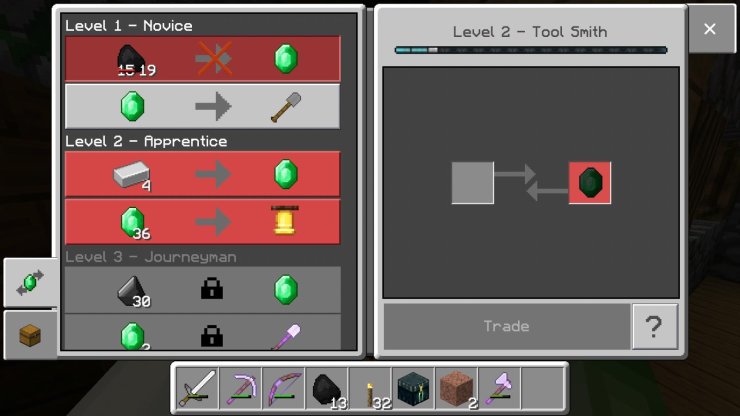
Interested in more of our articles related to Minecraft? Please check this post to find out more about Best Minecraft Tower Ideas And Detailed Tutorials
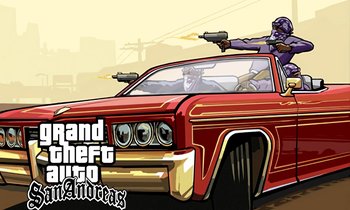
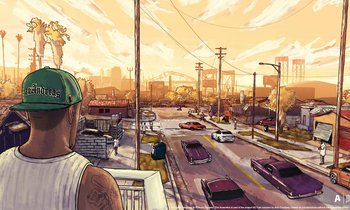








Comments